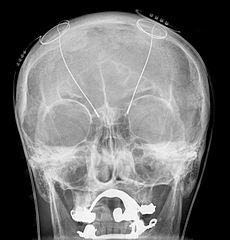Doctors may borrow a technique from heart procedures to help individuals living with chronic, persistent forms of anorexia – and give hope to those who haven’t seen positive changes, despite numerous treatment strategies.
A recent study indicated that placing a deep brain stimulator, which resembles a cardiac pacemaker, into the brain of patients may create mood changes and other effects that help the patients, even helping make positive changes toward body mass index. The individuals in the study had all tried other treatments before without significant benefit.
Placing the device into the brain tissue wasn’t highly invasive, and it could be removed without serious side effects. It is placed within the part of the brain that separates the left and right halves. Stimulation through electrodes is then applied, and mood shifts or other responses are analyzed. A couple of months following the insertion, about half the patients began to gain weight and show other positive shifts in attitudes and behavior. These changes included the ways the patients demonstrated obsessive-compulsive behaviors, which researchers noted could have strong potential for helping improve the lives of those living with the disease.
The process isn’t new in the treatment of brain-based diseases, although it hasn’t been applied to people with anorexia until recently. Similar technology has been applied to people living with Parkinson’s disease or other brain-level diseases, with studies showing improvements in well-being and social interactions. It may also be helpful for the symptoms of chronic depression that can accompany anorexia.
Anorexia affects hundreds of thousands of people, both men and women, and becomes fatal if untreated as the disease progresses. Researchers indicated that the study could open doors to hope and better disease and symptom management for people who have experienced numerous other treatments without improvement.


